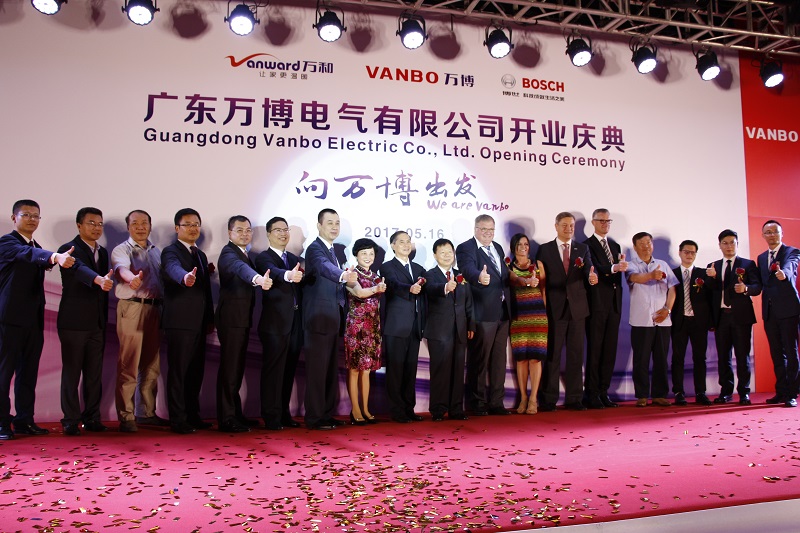
Shanghai – Bosch, a leading global supplier of technology and services, has announced today that the company achieved a successful year in China in 2016 with sales of
91.5 billion CNY (12.5 billion euros), representing a year-over-year growth of 19 percent. “China has always been an important growth engine for Bosch, both in the Asia Pacific region and globally. China has contributed 60 percent of the company’s sales in the Asia Pacific market, and 17 percent of its global sales, which makes it Bosch’s largest market outside Germany,” said Peter Tyroller, member of the board of management of Robert Bosch GmbH responsible for Asia Pacific. “The remarkable business performance of Bosch China is a solid basis for tomorrow’s success. In the future, we will drive our connectivity strategy forward in China through continuous investments in the local market.”
Strong performance for all business sectors in China
Looking at the development of Bosch’s business sectors in China, Mobility Solutions, one of the driving forces for the company, achieved robust gains, outpacing the average growth of the Chinese automotive market in 2016. The Consumer Goods business sector also recorded a healthy increase as its home appliances business performed especially well and maintained its leading position in the Chinese market. Thanks to the outstanding performance of the Thermotechnology division, the Energy and Building Technology business sector made further progress in 2016 and the Industrial Technology business sector achieved moderate growth, despite the stagnant market for this business. In the first quarter of 2017, Bosch China has maintained a good momentum with a steady double-digit growth. The company again expects to achieve above average market growth in the current year.
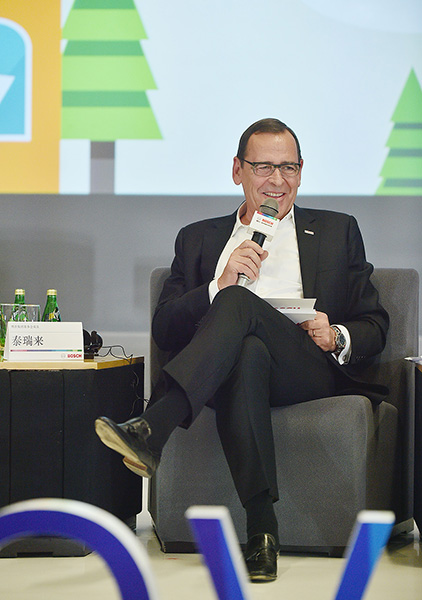
Bosch invests in connectivity in China
To cope with the increasing demand in the connectivity business, Bosch is actively investing in China and is now fully prepared for the long-term development of its connectivity strategy in the local market. In 2016 alone, Bosch’s investment in China amounted to 4.9 billion CNY (670 million euros). In July 2016, the new plant of Bosch Car Multimedia division broke ground in Wuhu. In November 2016, Bosch Home Appliances broke ground in Nanjing for its research and development centre, which will focus on areas of connectivity, smart home and Industry 4.0. In April 2017, Bosch announced the official opening of its new Automotive Electronics plant in Wujin, which will mainly provide electronic products and services for automated driving and connectivity in the local market. In addition, the joint venture plant of Bosch Thermotechnology division and heater company Vanward was open in Foshan in May. The joint venture will be committed to promoting smart connectivity in the boiler industry.
Bosch is also making continuous investments in R&D and talent development. In 2016, the company increased its research and development spending to around 5.6 billion CNY (760 million euros) in China, and more than 470 patents have been newly registered. In China, the Bosch Group employed nearly 59,000 associates as of December 31, 2016, among which, more than 6,300 associates are dedicated to research and development, an increase of 14 percent compared to the previous year. In China, Bosch Central Research Institute has set up a team of 12 people, focusing on IoT-related topics.
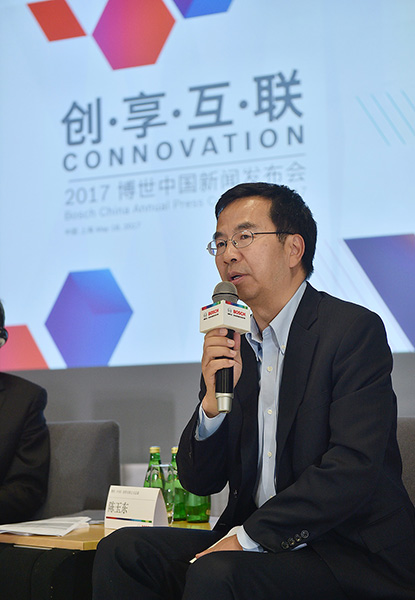
Strategic cooperation with Alibaba to further enhance e-commerce
In recent years, e-commerce in China has developed rapidly and has become an important driving force of national consumption. In 2016, the gross merchandise volume (GMV) of Bosch in Tmall exceeded 2 billion RMB, which was a 60 percent increase over 2015. In the internet era, consumers are also paying more and more attention to the overall customer experience, rather than simply the product itself, which drives Bosch‘s mindset to become more user-centric and focused more on providing users with a better experience. The booming e-commerce business in China is a good starting point, not only providing a new channel for marketing, but also allowing the brands to directly interact with consumers, and better understand the needs and feedback from consumers. “Through digital marketing sales and e-commerce, Bosch will design a better brand experience journey for potential customers and brand followers. Bosch’s strategic cooperation with Alibaba group is our latest attempt in this regard, “said Yudong Chen, president of Bosch in China..
As the first step in strategic cooperation, Bosch has officially launched the Bosch Tmall flagship store, one of the first cross-category Tmall flagship stores under one brand. The products of this flagship store cover the widest range of categories on Tmall platform. Through co-marketing activities like Bosch Tmall Super Brand Day, Bosch will utilize Tmall as its major platform to further enhance e-commerce business in China. In the future, Bosch will integrate the online flagship store and the offline experience centers to shape a new O2O (oneline to offline) sales model. The strategic cooperation between Bosch and Alibaba Group will go beyond the field of e-commerce, with deep collaboration being conducted in areas including IoT, big data, cloud computing and artificial intelligence by leveraging advantages of each other.
“The strategic cooperation between Bosch and Alibaba Group will be an important and sustainable growth engine for the sales and profits of Bosch business,” said Yudong Chen, president of Bosch in China, “The Bosch Tmall flagship store allows us to provide better service to our end consumers. The Bosch Member Club on this platform is able to offer the latest brand updates to our consumers, establishing more effective and more efficient interaction between the brand and consumers.”
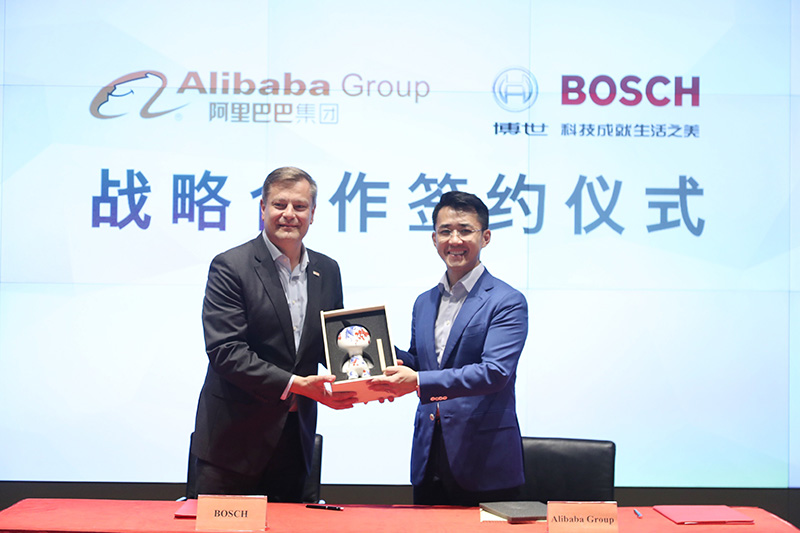
Bosch paves the way towards connectivity in China via local partnership
In order to support the “Internet plus” initiative in China, Bosch is actively seeking local partnerships in China to drive the connectivity strategy forward and help the country to become more connected. In the area of Connected Industry, Bosch, as an important initiator and pioneer of Germany’s Industry 4.0, is actively promoting the in-depth integration of Industry 4.0 globally. In March 2017, The Development Research Center (DRC) of China’s State Council and Bosch published a research report titled “Experience and knowledge from Germany’s Industry 4.0 for the Upgrading and Transformation of China’s Manufacturing Industry.” Bosch shared its knowledge and experience from its Industry 4.0 practice during the project and assisted in the transformation and upgrading of China's industrial and manufacturing sector.
As a leading global supplier of technology and services, the company is actively seeking and constructing local partnerships in the area of connected mobility. In March this year, Bosch reached a strategic cooperation with HealthLink, Inc., China's leading third-party emergency rescue management provider. The two companies jointly issued the "i rescue" emergency call to provide connected security solutions for Chinese car owners. In addition, Bosch announced a new cooperation with leading Chinese map providers Amap (Autonavi), Baidu and Navinfo in April 2017, to develop a crowd-source based robust and accurate localization service for automated driving in China. Recently, Bosch, together with Huawei, the world's leading communications technology provider, conducted live tests of a new technology, the V2X, which enables direct, latency-free exchange of information between vehicles so as to provide technical preparations for automated and connected driving. In the meantime, on the basis of the national laws and regulations, both parties are working on local development and testing for the use of car anti-collision warning and emergency braking, to better serve the needs of the local market.
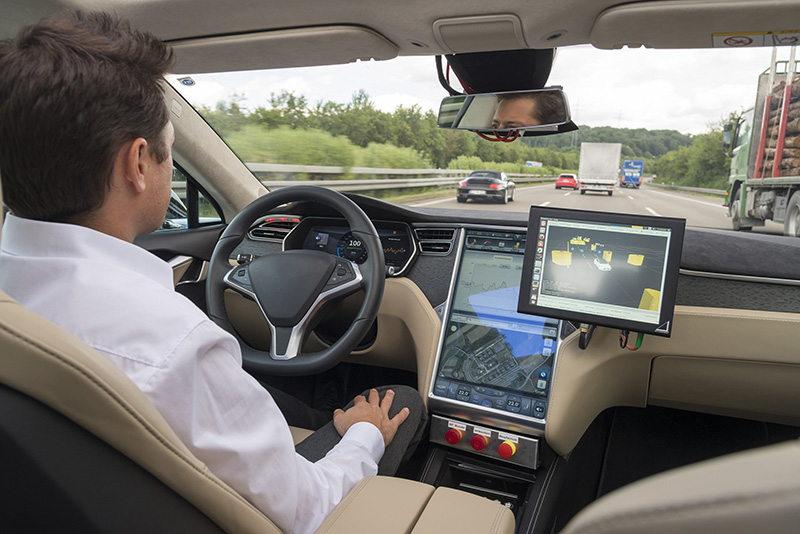
Bosch Group: Global strategy and business outlook for 2017
For 2017, in light of a subdued economic outlook and geopolitical uncertainty, Bosch aims to achieve sales growth of between three and five percent. And despite still heavy upfront investments in safeguarding the company’s future, result is set to rise. “Business success today gives us the leeway to shape tomorrow’s world,” said Dr. Volkmar Denner, the chairman of the Bosch board of management. “As an innovation leader, we are shaping and driving transformation,” Denner added. The focal points of this transformation are changes in the mobility sphere and IoT connectivity. By 2020, all Bosch’s new electronic products will feature connectivity. The key to this is artificial intelligence (AI). Over the next five years, Bosch will be investing 300 million euros in its own center for artificial intelligence.
In Asia Pacific, Bosch recorded a hefty 8.3 percent increase in sales in 2016 to 20.8 billion euros (exchange rate adjusted +12 percent). Bosch now generates 28 percent of its total sales revenue in Asia Pacific compared to 27 percent in the previous year.
